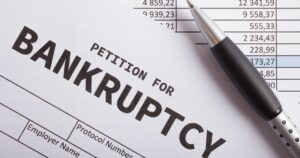In America and across the globe, we currently find ourselves in an unprecedented time. The global pandemic COVID-19 has affected almost everyone in one way or another. It has impacted health, obviously. And for many, this is understandably the most urgent and pressing concern presented by the virus. Beyond its health impacts, however, it has also significantly changed our day-to-day schedules and routines, our interactions with others, and for many, it has tremendously affected their financial situations. And if it hasn’t yet, it certainly might.
Some of the detrimental financial impacts of COVID-19 include:
- Loss of income: Understandably, many workers across the country find themselves suddenly unable to go into work, with no idea when they might again be able to do so. While some who are unable to go into work are fortunate enough to transition to a temporary work-from-home situation, many others do not have that luxury. While companies may be able to pay those who are not working on a short-term basis, there are understandable concerns that, as shut-downs across the nation stretch on, companies will no longer be able to continue doing so.
- Stock Market Losses: It’s no secret that the stock market has plummeted amidst the ongoing spread of COVID-19. People are seeing their retirement savings and other investments falling sharply and are understandably concerned and anxious about how long this decline might go on.
- Scammers: As unfortunate as it is, times of crisis and panic are often times that scammers consider to be ripe opportunities to prey on the vulnerable. It is not at all unusual during times of crisis to notice an increase in scam emails, texts, and social media postings, attempting to solicit money under false pretenses. It is important to be more wary than ever to avoid falling victim to these schemes.
As valiant efforts are being made across the country to treat victims and contain the virus, there are individuals in communities everywhere who are also equally worried about these financial impacts – about how they will continue to make ends meet in this uncertain time. People everywhere are wondering: What can I do to help protect myself financially during this time? What steps can I take to mitigate the losses I may be experiencing? These are certainly questions worth asking.
The good news is that, if you have lost your job, if your savings have been diminished, or if you have retained your job but aren’t receiving income until your company reopens, there are a few steps you may be able to take to relieve some of the financial burden:
- Contact Your Lenders: In this highly unusual environment, you may find that you are simply unable to pay all of your bills in their full amounts, on time. While doing so is always ideal, sometimes that’s just not the reality of the situation. In those cases, it is always worth attempting to contact the lender and explain your situation. Given the extraordinary circumstances, financial regulators are actively encouraging lenders (like credit card companies, for example) to work with customers in providing options that might alleviate financial stress. These might include waiving interest, allowing late payments, or adjusting minimum payment amounts, to name a few of many options. It is always worth calling to see what alternative arrangements might be possible.
- Contact Your State Unemployment Agency: Each state is different and has its own unique hardship and unemployment programs in place that may be able to offer financial relief, depending upon whether or not you meet certain qualifications. It is always worth contacting your state unemployment agency or state public health office to see what benefits might be available and how to go about applying. While these benefits may not entirely replace the income you lost, they can certainly make a difference in easing some of the financial burden.
- Cut Costs When You Can: Needless to say, a time when you find yourself suddenly without income is not the time to go out and make big purchases or expenditures. In fact, it’s time to do exactly the opposite. Making the effort to take a good look at your budget and your regular expenditures can be very beneficial in determining what non-essential expenses you might be able to cut down on, at least for the time being. While you may not be spending money on social activities during the shut-down, you may find that you are still paying for monthly subscriptions (gym memberships or television streaming services, for example), that you may be able to temporarily put on hold until financial circumstances are better. Looking for coupons and discounts for groceries online is another excellent and fairly simply way to cut costs on items that you use on a day-to-day basis. These steps may seem small, but cumulatively, they can add up to significant savings.
While all of these steps are excellent steps to take, the truth of the matter is that no one knows how long this particular crisis might continue and it is impossible to predict all of its impacts. In some cases, depending upon your personal circumstances and financial situation, you may find yourself confronted with or contemplating the possibility of bankruptcy.
Facing financial strain is difficult. We’re here to help. Contact us for a no-obligation consultation today.

